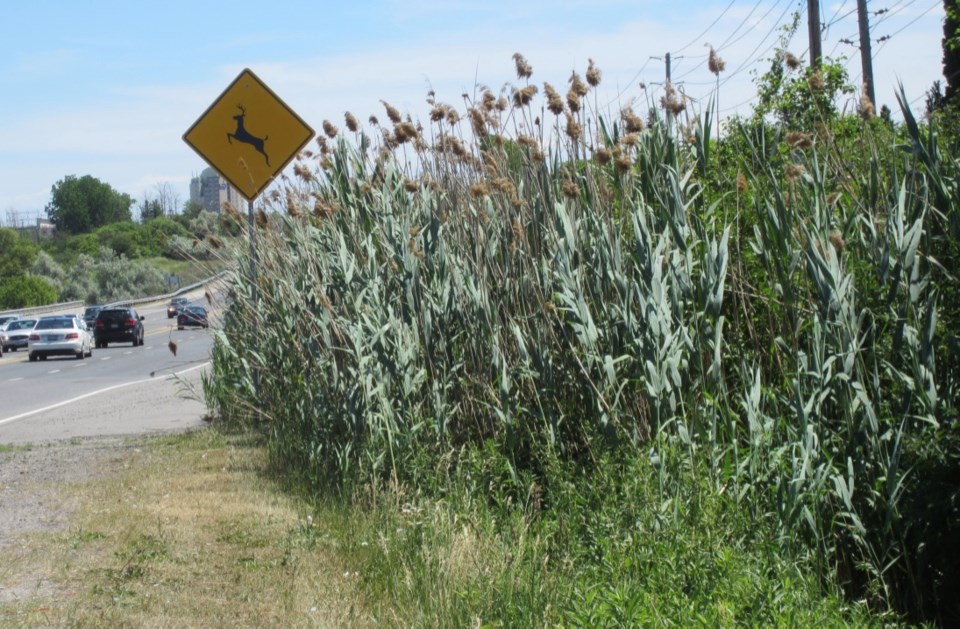BarrieToday welcomes letters to the editor at [email protected]. Please include your daytime phone number and address (for verification of authorship, not publication). The following letter is from Springwater Township resident Kate Harries, invasive species committee chair with the Marl-Tiny-Matchedash Conservation Association.
*************************
Municipal budgets can expect to take a hit in coming years from an unexpected direction.
The cost of controlling the rapidly expanding and fast-growing tall invasive species called phragmites can be expected to add red ink at the lower-tier level across the province.
As invasive phragmites (phrag) spreads rapidly along rural roadsides, it has become a significant safety hazard at intersections by obstructing driver sightlines.
The dense roots impact municipal infrastructure by clogging drains, ditches and culverts causing road flooding and related damage.
Already phrag is growing along more than 1,000 kilometres of roadside in Ontario. The current cost to treat a single kilometre of phrag-infested roadside is estimated at $6,000.
When municipalities work closely with local partners and budget proactively for phrag control, they can limit the spread, protect biodiversity and manage their liability.
Phrag also impacts recreational opportunities such as swimming, boating, fishing, bird-watching and hunting, costing local economies an estimated $42.7 million a year, according to a cost/benefit analysis carried out for the Green Shovels Collaborative.
Waterfront landowners take a double hit, seeing their property values reduced by $357 million due to phrag encroachment, the study indicates.
The Marl-Tiny-Matchedash Conservation Association has undertaken a three-year project to control invasive phragmites at Tiny Marsh. We wish to express our appreciation for funding support to our local municipality, the Township of Tiny, that allowed us to secure funding from Environment and Climate Change Canada and other organizations.
Municipalities alone will not be able to eliminate this economic and environmental burden and become phrag-free.
We join with the Ontario Phragmites Working Group and the Ontario Invasive Plant Council in calling for a substantial investment by governments to support municipalities and their partners’ efforts in invasive phragmites control.
Kate Harries
Springwater Township
*************************



